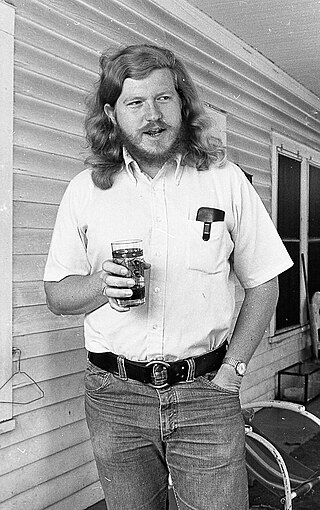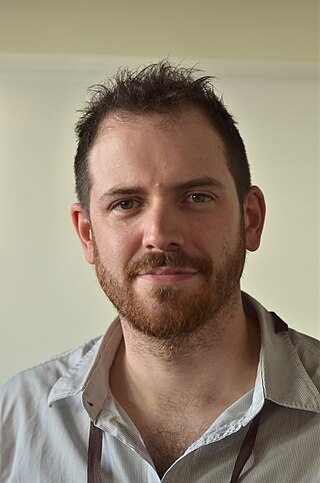Joseph O'Neill (1886-1952) was an Irish novelist.

Joseph O'Neill (1886-1952) was an Irish novelist.

O'Neill claimed later in his life that he was born in the Aran Islands, County Galway, Ireland, in 1886, but he was in fact born in the inland Galway town of Tuam, preferring, as a writer, the perceived romance of being born in the Gaelic-speaking islands. He became a school inspector and subsequently Secretary of the Department of Education in the newly formed Irish Free State. He wrote five novels, of which the best-known was Land Under England (1935), a science-fiction account of a totalitarian society ruled by telepathic mind control. The novel combines elements of a "lost race" narrative (the descendants of a Roman legion live underground under the north of England) with fears of totalitarian control. [1] Land Under England has an anti-fascist subtext. [2] [3] The novel was cited by Karl Edward Wagner as one of the thirteen best science-fiction horror novels. [4] His other SF novel, published in 1936, is the future-war story Day of Wrath. His other novels include the time travel (or timeslip novel) Wind From the North, in which the author is transported in a dreamlike fashion to Dublin or Dyflin in the period leading up to the Battle of Clontarf in 1014, and Philip, a biblical epic. Wind from the North was later a standard Irish primary school text in the 1950s, in an edition published by Browne & Nolan.[ citation needed ]
He died on 6 May 1952.
O'Neill was the husband of a noted writer in her own right — Mary Devenport O'Neill. She was a poet and friend of W. B. Yeats, who consulted her when writing 'A Vision'.

Michael John Moorcock is an English–American writer, particularly of science fiction and fantasy, who has published a number of well-received literary novels as well as comic thrillers, graphic novels and non-fiction. He has worked as an editor and is also a successful musician. He is best known for his novels about the character Elric of Melniboné, which were a seminal influence on the field of fantasy in the 1960s and 1970s.

Alastair Preston Reynolds is a Welsh science fiction author. He specialises in hard science fiction and space opera.

John Thomas Sladek was an American science fiction author, known for his satirical and surreal novels.

Robert Shaw was a science fiction writer and fan from Northern Ireland, noted for his originality and wit. He won the Hugo Award for Best Fan Writer in 1979 and 1980. His short story "Light of Other Days" was a Hugo Award nominee in 1967, as was his novel The Ragged Astronauts in 1987.

Sam Youd was a British writer best known for science fiction written under the name of John Christopher, including the novels The Death of Grass, The Possessors, and the young-adult novel series The Tripods. He won the Guardian Children's Fiction Prize in 1971 and the Deutscher Jugendliteraturpreis in 1976.

Robert James Sawyer is a Canadian and American science fiction writer. He has had 25 novels published and his short fiction has appeared in Analog Science Fiction and Fact, Amazing Stories, On Spec, Nature, and numerous anthologies. He has won many writing awards, including the best-novel Nebula Award (1995), the best-novel Hugo Award (2003), the John W. Campbell Memorial Award (2006), the Robert A. Heinlein Award (2017), and more Aurora Awards than anyone else in history.

Richard Kingsley Morgan, is a British science fiction and fantasy author of books, short stories, and graphic novels. He is the winner of the Philip K. Dick Award for his 2003 book Altered Carbon, which was adapted into a Netflix series released in 2018. His third book, Market Forces, won the John W. Campbell Award in 2005, while his 2008 work Thirteen garnered him the Arthur C. Clarke Award.

The Magazine of Fantasy & Science Fiction is a U.S. fantasy and science-fiction magazine, first published in 1949 by Mystery House, a subsidiary of Lawrence Spivak's Mercury Press. Editors Anthony Boucher and J. Francis McComas had approached Spivak in the mid-1940s about creating a fantasy companion to Spivak's existing mystery title, Ellery Queen's Mystery Magazine. The first issue was titled The Magazine of Fantasy, but the decision was quickly made to include science fiction as well as fantasy, and the title was changed correspondingly with the second issue. F&SF was quite different in presentation from the existing science-fiction magazines of the day, most of which were in pulp format: it had no interior illustrations, no letter column, and text in a single-column format, which in the opinion of science-fiction historian Mike Ashley "set F&SF apart, giving it the air and authority of a superior magazine".
Victor Gollancz Ltd was a major British book publishing house of the twentieth century and continues to publish science fiction and fantasy titles as an imprint of Orion Publishing Group.

Karl Edward Wagner was an American writer, poet, editor, and publisher of horror, science fiction, and heroic fantasy, who was born in Knoxville, Tennessee and originally trained as a psychiatrist. He wrote numerous dark fantasy and horror stories. As an editor, he created a three-volume set of Robert E. Howard's Conan the Barbarian fiction restored to its original form as written, and edited the long-running and genre-defining The Year's Best Horror Stories series for DAW Books. His Carcosa publishing company issued four volumes of the best stories by some of the major authors of the so-called Golden Age pulp magazines. He is possibly best known for his creation of a series of stories featuring the character Kane, the Mystic Swordsman.

Manly Wade Wellman was an American writer. While his science fiction and fantasy stories appeared in such pulps as Astounding Stories, Startling Stories, Unknown and Strange Stories, Wellman is best remembered as one of the most popular contributors to the legendary Weird Tales and for his fantasy and horror stories set in the Appalachian Mountains, which draw on the native folklore of that region. Karl Edward Wagner referred to him as "the dean of fantasy writers." Wellman also wrote in a wide variety of other genres, including historical fiction, detective fiction, western fiction, juvenile fiction, and non-fiction.

Science fiction is an important genre of modern Japanese literature that has strongly influenced aspects of contemporary Japanese pop culture, including anime, manga, video games, tokusatsu, and cinema.

The Black Corridor is a science fiction novel by Michael Moorcock. It was published in 1969, first by Ace Books in the US, as part of their Ace Science Fiction Specials series, and later by Mayflower Books in the UK.
John Meaney is a British science fiction author.

The Space Machine, subtitled A Scientific Romance, is a science fiction novel written by English writer Christopher Priest.

Joseph Edward Abercrombie is a British fantasy writer and film editor. He is the author of The First Law trilogy, as well as other fantasy books in the same setting and a trilogy of young adult novels. His novel Half a King won the 2015 Locus Award for best young adult book.

Final Blackout is a dystopic science fiction novel by American writer L. Ron Hubbard. The novel is set in the future and follows a man known as "the Lieutenant" as he restores order to England after a world war. First published in serialized format in 1940 in the science fiction magazine Astounding Science Fiction, Final Blackout was published in book form in 1948 by The Hadley Publishing Co. Author Services Inc. published a hardcover edition of the book in 1988, and in 1989 the Church of Scientology-affiliated organization Bridge Publications said that a film director named Christopher Cain had signed a contract to write and direct a movie version based on the book.

The Death Guard is the only published novel of the English author Philip George Chadwick. Although the author is virtually unknown to the wider public, his work has received attention from literary scholars. The novel contains many themes later developed by L. Ron Hubbard and James Blish. Chadwick was a political thinker with socialist tendencies, a Fabian and subsequently an Independent and a disciple of H. G. Wells.

Ring Around the Sun is a science fiction novel by American writer Clifford D. Simak. Its anti-urban and pro-agrarian sentiments are typical of much of Simak's work.
List of complete works by Canadian fantasy fiction author Steven Erikson.
Giffuni, C. "Joseph O'Neill, a Bibliography," The Journal of Irish Literature, Volume XVI Number 2 May 1987.